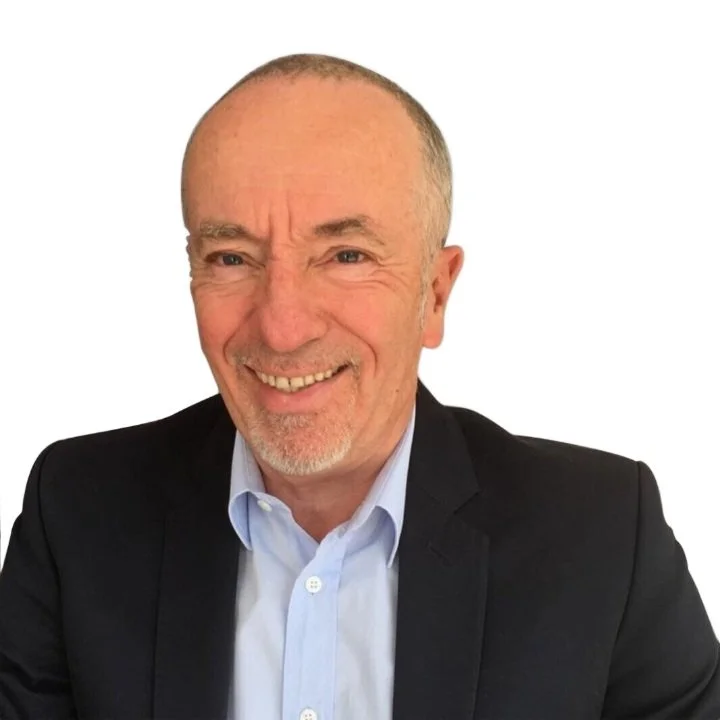Dr Damien Downing
Dr Damien Downing
I have a particular interest in several areas of medicine, but the longer I practice the more I learn that they are all interconnected, so you need an integrative approach that considers all the aspects together. Here’s a list of key areas that we consider:
Allergies, intolerances and auto-immunity
More and more of us are becoming food-intolerant, sometimes triggered by infections or environmental pollution, and often by a leaky gut. According to one brilliant study from 2015;
“Glucose, salt, emulsifiers, organic solvents, gluten,microbial transglutaminase, and nanoparticles are extensively and increasingly used by the food industry…. all of the aforementioned additives increase intestinal permeability.” (Transglutaminase is an enzyme used widely to “improve” the texture and appearance of food).
Auto-immune disease is also growing rapidly. Recent research links this to a long list of toxins – such as mercury in Hashimoto’s disease, Auto-immune Thyroiditis – and to a number of infections that can trigger autoimmunity in those with a particular genomic make-up (the HLA system).
Another key concept is the ASIA syndrome described by Yehuda Shoenfeld – Autoimmune/Autoinflammatory disease Induced by Adjuvants – a term which includes many of the agents contained in vaccines, and which became recognised after Gulf War Syndrome.
Please see this article What is EPD for some of the ways we address the allergy problem. But remember that achieving good health likely involves ALL of the headings here. There is more information in my book The Vitamin Cure for Allergies, which we have in stock here.
MCS and EHS
Around 5% of people report Multiple Chemical Sensitivity (MCS), but in one way they are the lucky ones because they detect the poisons early and can take steps to avoid them. The rest of us just keep getting poisoned. Desensitisation can certainly help with chemical sensitivities, but it also takes targetted nutrition and detoxification, plus reducing your exposure
Electromagnetic Hypersensitivity (EHS or ES) is a growing problem, set to get worse with the roll-out of 5G, but the evidence clearly shows that existing levels of EMFs are harmful to humans, to animals, to all biological systems in fact. You can see more about this in the Consensus Statement on Non-Ionising Radiation on the BSEM website.
An important lesson we have learnt about EHS and MCS is that it’s not black and white, not binary. You don’t need to be, and probably can’t be perfect; all reductions in exposure and all improvements in nutrition and lifestyle are worth doing. If you get a good night’s sleep in a “clean” environment for instance, that is well worth doing.
Gut health
It is usual for the digestive system to be a major factor in health problems – often the key factor. Remember; “Glucose, salt, emulsifiers, organic solvents, gluten, microbial transglutaminase, and nanoparticles…. all of these increase intestinal permeability.” And if your gut is leaky your digestion is impaired, and vice versa.
Allergens and toxins can get into your bloodstream and cause harm – not least to your liver, which can become overloaded and stressed. Often this is the first place where things go wrong. When you develop a problem digesting food, it typically starts with fatty foods. This is NOT AN ALLERGY; it’s your liver and biliary system feeling the strain. Fixing the liver is the first step in fixing digestion.
Nobody these days can afford to forget we now call the microbiome - the organisms that live on and in you, particularly in the gut. We do use probiotics to this end, but it also needs attention to the whole chemical environment in the gut.
You could start by reading a short article on my website – Healing the Gut. There is much more in my 2014 book The Vitamin Cure for Digestive Disease, co-authored with nutritional therapist and nurse Anne Pemberton. It contains practical advice for a range of digestive problems. We have it in stock.
Environmental toxic effects
Environmental toxins damage our bodily systems and trigger disease. They accumulate in the environment, and thus in our food, water, air, and on indoor surfaces. Sitting at the top of the food chain we are subject to the biomagnification effect; we are even more poisoned than what we eat. This is why it is estimated that the average adult person ingests enough plastic every week to make a credit card.
The potential consequences include chronic fatigue, allergies (including MCS), auto-immune and auto-inflammatory diseases, neurodevelopmental and neurodegenerative diseases, cancers and more.
Toxicology has always assumed that for every substance there exists a threshold level below which it can do no harm. But that threshold keeps moving downward, even as our exposures move inexorably upward, and some things are simply unsafe at any level.
The same rule applies here; you don’t need to be, and probably can’t be perfect; all reductions in exposure and all improvements in nutrition and lifestyle are worth doing.
Mould and Mycotoxins
The world has learnt a lot about mould and water-damaged buildings from the effects of Hurricane Sandy in 2012, which swept up the East Coast of the USA as far as New York. Thousands of people were left with chronic illness that turned out to be triggered by mould growth and the toxins that moulds produce – mycotoxins. But we can also be exposed to these in our food and drink, with sometimes devastating consequences.
We can test for mycotoxins and if they are coming from inside your body, remove them. For external sources there are specialist companies that can evaluate and remediate your indoor environment.
Mitochondrial dysfunction
We have been focussing on mitochondrial health and function for almost 20 years now, assisted by cutting-edge laboratories. Mitochondria are influenced by all the nutrients and pollutants that course through our system, and by just about everything else that goes on in our bodies and minds.
Three studies by John Maclaren Howard, Dr Sarah Myhill and Norman Booth clearly show that people with Chronic Fatigue syndrome (CFS) have problems in their mitochondria. So that’s where we start, with blood tests to look at the mitochondria and other aspects of cell function. Then we think about all those potential causes – infections, toxic exposures and so on, using your history and any past laboratory findings to prioritise them.
Membrane lipids and lipid therapy
For more than a decade now I have worked with Dr Patricia Kane and her husband Ed in the USA; between them they know more about lipids than anyone in the world. They have helped me to understand these most complex structures. Lipids (fats and oils) used to be dismissed as the “worthless, greasy stuff”, but actually they are the secret to life. Many people have realised their importance and try to support them with supplements, but this is a complex area and it is easy to get mixed up.
We use laboratory assessment of lipids to find the way forward – assessment of both the essential, nutritional lipids and those damaged by toxins or infections.
Ketogenic Diet
I have to say this; Sugar is the Devil. Delicious it may be, but it’s not just your teeth it rots – also the immune system, the brain, the general metabolism. And eating fat doesn’t make you fat either. You can read more about all this in an article on my own website - Fat is My Friend.
For many purposes the optimal diet is a ketogenic one, also known as LCHF - Low Carb, High Fat. Same number of calories as carbs, but from fats instead. True, everybody is different, but expect that some diet reform will be necessary. We can even provide glucose and ketone meters like the diabetics use, to track your progress.
Genomic medicine
We are all exposed to multiple toxins from the environment; why does it only make some people sick? Often the answer is in their genomics, the minor alterations in genes that can determine our capacity to detox, for example. Why can infections like Lyme cause devastating diseases in some people but not others? Same answer.
I have been using genomic data for 16 years now, and while it does not explain everything, it is a valuable additional layer of information and understanding, which can help in selecting treatment modalities. For 3 years now the lab of choice has been excellent British start-up Lifecode. Their list of panels is updated frequently, and so far includes the key areas of Methylation, Detoxification, Oestrogen Balance, Histamine, Neurotransmitters, APOE, Thyroid Health, Nutrient Core and Athletic Performance.
Light
Of course I am fascinated by light, ever since I wrote about it in Daylight Robbery. It is the driver of all life on earth. As Weston Price said in 1928; “The dinner we have eaten was a part of the sun but a few months ago”. Vitamin D is a big part of this, but we know that light also stimulates production of NO, crucial for opening up blood vessels, and has effects on the endocrine system and the brain.
Some years ago I was involved in start-ups providing full-spectrum lighting (including at the original Hale Clinic in Park Crescent). But now we have the opportunity to do even better; we are collaborating with Weber Medical in Germany to use light as therapy in three ways:
Intravenous laser light therapy (comes in 4 colours plus ultraviolet)
Transdermal and transmembrane light therapy with the “Laser Watch”
Photodynamic therapy using both the above plus activator substances (Riboflavin, Curcumin, Methylene Blue)
Vitamin D
We now realise that vitamin D is a super-regulator, influencing hundreds of genes in every cell, supporting the immune system, helping to prevent cancers and heart disease, oh yes, and strengthening bones. Do you know how much you really need? Especially now we have Covid-19 to deal with.
Sleep
Sleep is essential; it is when we repair our tissues and recover from the day. Recently we have come to understand better what goes on in our brains during sleep, and how it is actually impossible to do the necessary bodily housekeeping and to move or think at the same time. But it took some brilliant insights by a neurologist in Texas to show us how to fix sleep problems - even sleep apnoea - and get back to the repair work.
Vitamin D can fix sleep, but it takes a surprisingly high level and some time; you also need vitamin B5 and all the B vitamins. We depend on the healthy gut microbiome to provide these B vitamins, and they need us to provide them with vitamin D. It’s a mutual support system, us and the main gut bacteria together. You can fix everything you like, but if you don’t sleep well you won’t heal. Bad sleep can be fixed using Dr Gominak’s insights, but it takes time and careful testing.
Cancer
This is all I will say about cancer here;
I am not a cancer specialist, and I cannot replace your oncologist and/or surgeon. Nor do I have the training or qualifications to tell them what to do. What I can offer you if you have a diagnosis of cancer is best described as adjunctive nutritional and metabolic support.
There is more on this adjunctive support on my website – Nutritional support in cancer – and much more about the integrative approach on the website of patient support charity Yes to Life.


